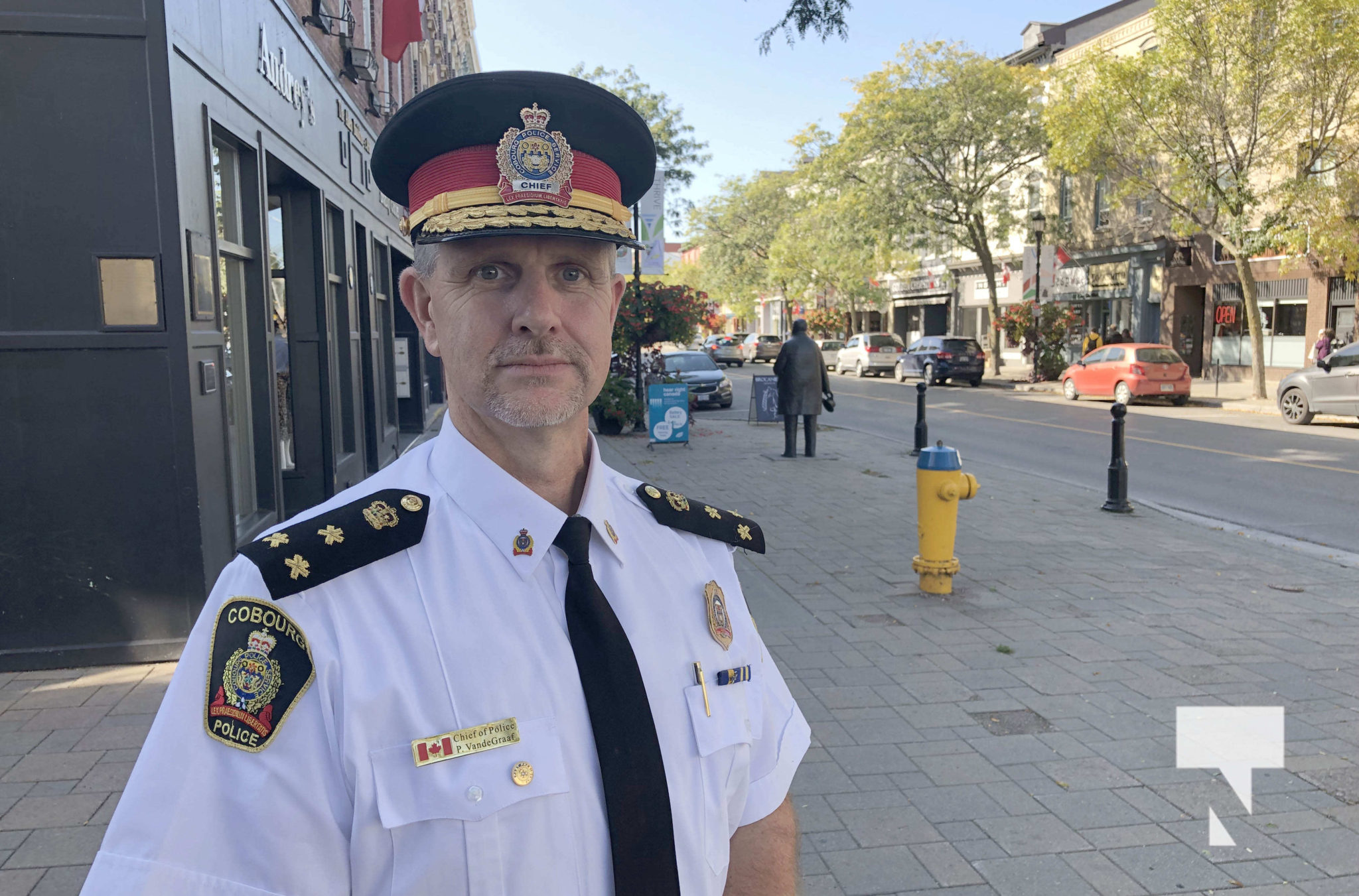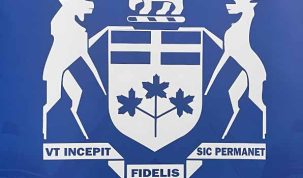Exclusive – The agency who control the prosecution of the Federal Courts have stated courts do not direct investigations or decide what charges should be laid in any investigation – including drugs.
But Cobourg Police Chief Paul VandeGraaf said he was informed by the Provincial Prosecutor not to forward any simple possession charges in terms of illegal drugs.
VandeGraaf stated in his December 2023, Chief’s Report at the Police Services Board meeting that for simple possession, “it stands with the Provincial Prosecutor that Canada’s decision not to forward any simple possession offences.”
VandeGraaf added that in most cases when police deal with people who may have illegal drugs, most times they have been consumed.
“If we find people with a simple amount of drugs, the drugs will be seized and destroyed.”
But spokesperson for the Public Prosecution Service of Canada (PPSC), Nathalie Houle stated in a e-mail to Today’s Northumberland that, “the Public Prosecution of Canada which controls the Provincial Courts has stated, “the laying of charges falls within the jurisdiction of the police, not the PPSC.”
And further added, “the PPSC does not direct investigations or decide what charges should be laid. Law enforcement agencies make those determinations independently.
In August 2020, the Director of Public Prosecutions issued “Guideline of the Director Issued under Section 3(3)(c) of the Director of Public Prosecutions Act.”
Which is a directive to its prosecutors on the prosecution of “simple possession.”
In the guidelines set out, it states prosecutors should focus on the more serious cases raising public safety concerns for prosecution, “and to otherwise pursue suitable alternative measures and diversion from the criminal justice system for simple possession cases.”
The guidelines of the approach, “reflects the multiple tools Parliament has created, and prosecutorial policies incorporated over time,” including Drug Treatment Courts, alternative measures as well as judicial referral hearings.
“It also reflects three realities: (i) substance use has a significant health component; (ii) in addition to the personal health component, substance use may be associated with conduct that poses separate serious public safety concerns requiring a criminal enforcement component; and, (iii) simple possession may result in a criminal record as well as a fine or a short period of incarceration.”
The guidelines also state that as a primary response, criminal sanctions, “have a limited effectiveness as (i) specific or general deterrents and (ii) as a means of addressing the public safety concerns when considering the harmful effects of criminal records and short periods of incarceration.”
With substance use, “it is often associated with other criminality, such as weapons possession and the threat of or commission of violent crime.”
“Consideration must be given as to whether the public safety concerns associated with the substance use are more readily addressed through the prosecution of the other criminal activity.”
The conclusion of the guidelines add, “some regional flexibility will be permitted.”
Under the Public Prosecution of Canada it states, “the police investigate criminal offences and arrange for suspected offenders to appear in court. At the other, Crown counsel are responsible for presenting the Crown’s case in court. Their roles are interdependent. While both have separate responsibilities in the criminal justice system, they must inevitably work in cooperation to administer and enforce criminal laws effectively.”
Update: the last time Cobourg Police charged an individual with possession was on December 5, 2023 when a vehicle was involved in a collision at Walmart.






















